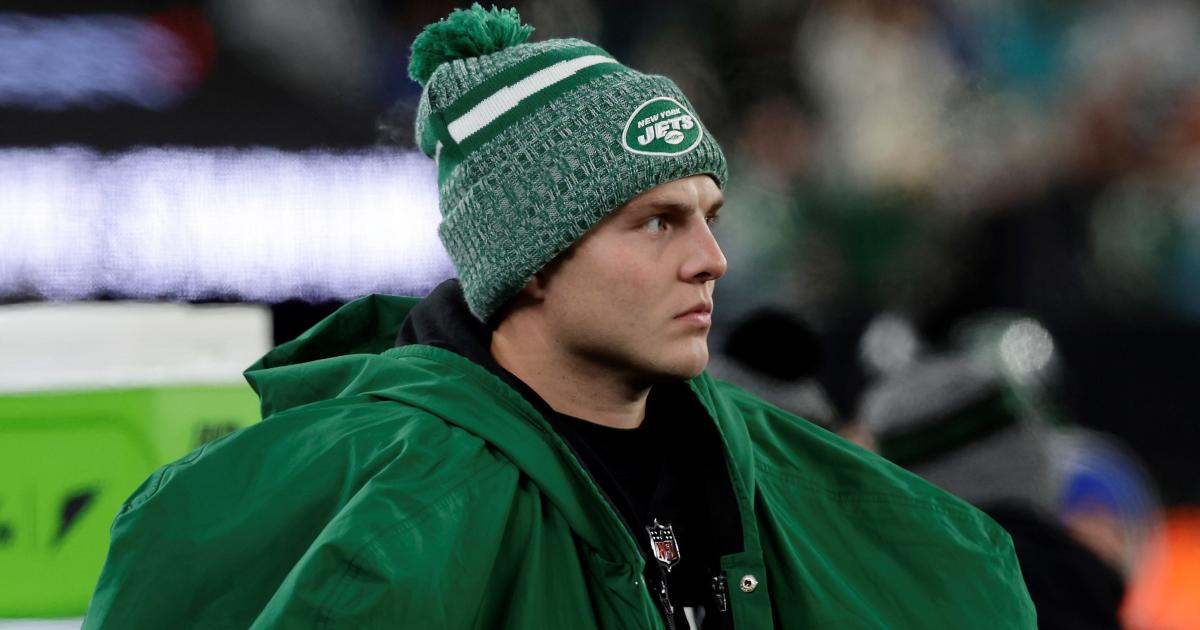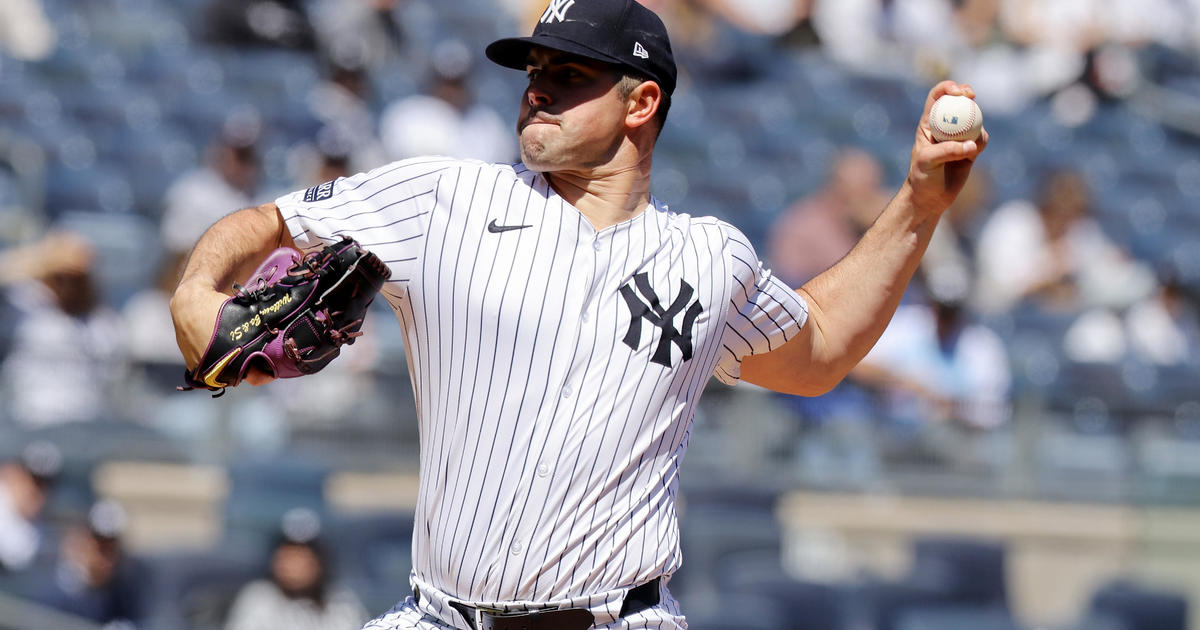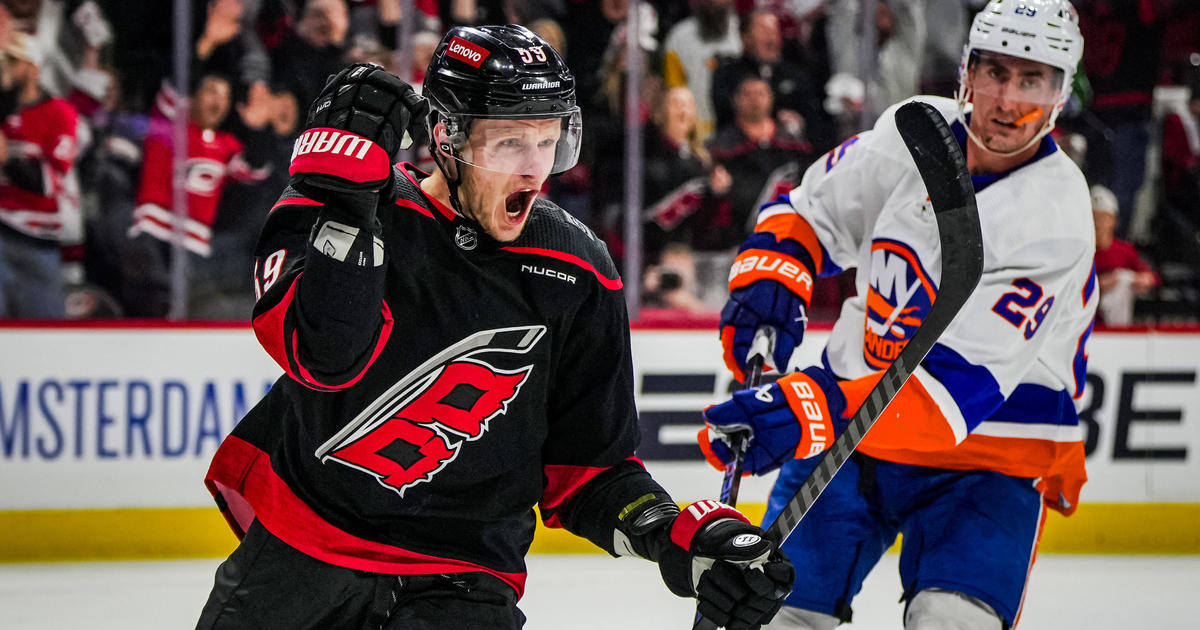NHL Adopting New Rules For Players With Concussion Symptoms
BOCA RATON, Florida (AP) — Accidental concussions in the NHL have doubled since last season, and general managers are looking at ways to slow the game.
The GMs began three days of meetings Monday with head injuries leading the agenda. Following the first session, Commissioner Gary Bettman announced the league will adopt a more rigorous protocol for examining players with possible concussions.
Other changes are likely. The speed of the sport has long been a big attraction, but a rise in concussions and two recent high-profile cases have created pressure to revise the rules.
"We will look at a lot of areas," Montreal's Pierre Gauthier said. "There's a definite will to improve the situation and make the game safer."
The Canadiens' Max Pacioretty sustained a severe concussion last week, and Pittsburgh Penguins star Sidney Crosby practiced Monday for the first time since being sidelined in early January because of a concussion. Such injuries have left fans unhappy, and sponsor Air Canada threatened to withdraw its support.
As a result, GMs are thinking about applying the brakes.
"It's kind of odd that we're talking about rules to slow things down," Tampa Bay Lightning general manager Steve Yzerman said. "Players are bigger athletes. They're faster and stronger. The equipment is designed to shoot the puck harder and faster. But now we're going the other way and looking at, 'OK, how do we make it slower?'"
Other possible changes include a ban on head shots. But Crosby noted such a rule might be difficult to implement.
"There are times when there is going to be accidental contact, and how do you deal with that?" he said. "If someone targets the head, then yeah, I think that should be banned. ... It's whether or not it's intentional. Sometimes that's tough to really know when you're talking about a fast game like hockey."
Blindside hits to the head were banned last year. As a result, only one concussion this season was caused by a blindside hit, compared with four a year ago.
Another issue is the accurate diagnosis of head injuries. Under the new protocol, any player showing concussion symptoms must be examined by a doctor in the locker room. Until now, an examination on the bench by a trainer was the minimum requirement.
As the meetings began, general managers were given the results of a two-year statistical study, and they watched video of nearly all of the concussions this season. According to the study, 44 percent of concussions this season have resulted from legal hits, 26 percent from accidental hits, 17 percent from illegal hits and 8 percent from fighting. The cause of 5 percent couldn't be determined.
"People would be surprised how many concussions are from inadvertent contact," Toronto Maple Leafs GM Brian Burke said.
Concern about concussions has been on the rise in other sports as well, and the rate of such injuries in hockey may be increasing partly because of better awareness and diagnoses.
Regardless, there's a consensus head injuries need to be reduced.
"It's never going to be a safe workplace," Burke said. "It never has been. It never will be. But I think it's incumbent on us to see if there are ways we can make it safer without changing the fabric of our game."
The league will study using smaller equipment and making the playing area safer. Pacioretty was left with a severe concussion and cracked vertebra when he was driven into a glass partition by Boston Bruins defenseman Zdeno Chara.
"There's no one single thing causing concussions," Bettman said. "There is no magic bullet to deal with this. I know that it's an emotional, intense subject, particularly for our fans. We get it. But dealing with this issue is not something you can do whimsically or emotionally. You really have to understand what's going on."
Punishment is another aspect of the debate. Bettman said he'll take steps this offseason to ensure clubs are responsible for the acts of their players. He defended the league's decision not to fine or suspend Chara.
"I took a poll of the general managers," he said, "and overwhelmingly they believe that the right decision was made in that case, and that no supplemental discipline should have been imposed."
Bettman said he's not concerned about losing sponsors because of concussions, despite the threat from Air Canada.
"I believe the people at Air Canada are fans of the game, and their concerns about player safety are no different than our concerns about player safety," Bettman said.
At least two other sponsors, Kraft Canada and Scotiabank, expressed their continuing support for the NHL.



